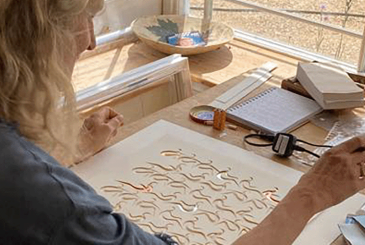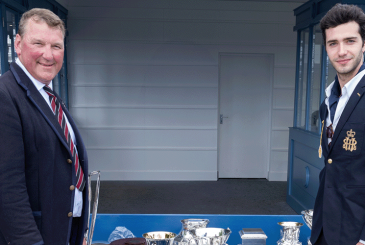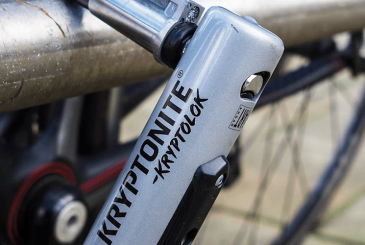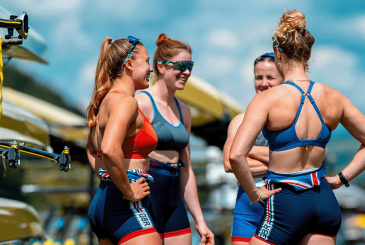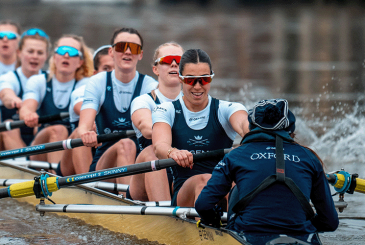Ira Dubey from Junior Rowing News shares six things that team-mates value in racing crews.
Interestingly, when you talk to rowers and coxes about what makes stand-out crew members, big erg scores or even top-notch technique doesn’t come that high up the list. The things people value in a good team mate are behavioural rather than physical, and that’s good news, because it means that anyone can achieve them.
Please note that these suggestions are mainly intended for individuals and crews who are focused on racing and for whom results are an important part of the overall enjoyment of the sport. Some also apply to crews with different objectives.
Steve*, a junior at a Tideway-based club, emphasised the importance of trust on and off the water, “Rowing together is one of the easiest ways to build trust, every session is like a team bonding activity! With that, there’s nothing worse than rowing with someone who’s broken your trust.”
As with anything, you can destroy respect and trust far more easily and more quickly than you can build them. So, use these tips both to build trust by contributing in more ways than raw power, and to make sure you don’t lose it with one careless comment or action.
1. Be on time
Get off to the right start every session being punctual. No one likes waiting around for the last member of the crew when they’ve made the effort to be on time themselves. And for land training sessions, it’s important that you’re there for the warm up to avoid injury.
Of course there will always be odd occasions when it’s really not your fault that you’re late, but you’ll be forgiven for those exceptions if it’s not already a habit.
2. ‘Shut up and row’
Most of us will have an opinion about how the outing’s going, what the crew should focus on, or even a motivational idea mid-piece. But once you’re in the boat and rowing, what would it be like if everyone – and this applies particularly to fours/quads and eights/octs – said it out loud? And in particular, if they said it at the moment the thought popped into their head?
Part of the discipline of crew rowing is that each person has a role, and unless you’re the cox or steers, yours doesn’t involve talking. This includes when you’re spinning or taking tops off – although it’s generally fine to make the odd comment to the person next to you – but as soon as the person in charge of the boat says, “Number off when you’re ready” or “Whole crew to backstops”, it’s time to talking and just row. And if the balance is badly down on one side for several strokes, see what you can do about it (draw up at the finish, or get your hands away faster, perhaps) rather than shouting out, “Get it off strokside!”
Another aspect of this is making a comment the instant you wind down. Apart from the reasons already given, it suggests to everyone else that you weren’t working as hard as you could have been because you’ve got the breath to say things.
That said, there can be a place for no more than one person in a crew giving a short whoop mid-piece of it’s going well; keep this for special occasions for maximum effect, though.
‘Shut up and row’ is one area where you can model the behaviour of top crews; your technique, strength and fitness make not be World-class standard, but your boat etiquette can be up with that of the gold medalists!
3. Be consistent
When you’re rowing firm pressure, one person slackening off will a detrimental effect on the performance of the whole boat. As the boat begins to feel heavier, others will struggle to keep up their previous output and/or be tempted to take it easier. Before you know it, there’s a downward spiral and you’re going much slower. Sweep-oar boats will feel this more acutely than than sculling crews. Loss of power in bow pair of sweep boats can also cause steering problems.
Obviously, everyone gets fatigued as a training piece, outing or race progresses, and at different rates. The point here is that deciding to ‘give yourself a break’ for a few strokes has a much larger impact on the boat than simply the reduction in power applied to your blade/s.
4. Don’t talk other people down
Both Leah and Steve agreed that crew mates – and coaches – must maintain degree of professionalism, or things can go south very quickly. Gossip is never beneficial to the performance of the crew as a whole.
“It’s hard to trust someone who brings down other team mates in front of you because you can never be sure they aren’t saying the exact same things about you to someone else,” Steve concluded. “The solution? Don’t be that person!”
One of the tensions in any rowing squad is that your rivals in seat racing one week can be your crew mates the next. Never ‘burn your bridges’ with someone’s trust; you don’t know when you’ll want them to trust you next.
5. Be aware of your emotional impact on others
In any kind team, the most effective members are those who are aware of their emotional impact on everyone else. Complaining – even about something external like the weather – can suck the energy from everyone.
“My best advice is to try not to be overly negative,” Steve added. “We all know the piece is hard, it’s cold outside, and it’s raining. I try to keep the complaining to a minimum because, ultimately, it’s pointless.” In fact, when it comes to bad weather, pre-outing comments about it in humorous terms can bond the crew positively; you’re about to go out and take on the elements together!
Steve continued, “The worst [kind of complaining’] is when it’s about someone else’s rowing. Critiquing is the coach’s job; we’re meant to have each other’s backs out there.” If you have constructive suggestion for how to improve something in the crew, take it to your coach, so they can deliver it in the best way. Let the coach do their job while you do yours.
Crews which get the most out of themselves will usually have a culture where everyone recognises that the boat is only the sum of the individual in it, so supporting someone who is struggling is important. “Happier team mates are more likely to row well together,” Leah shared. If someone is upset , find a way to sprinkle some happiness back into their session. Reaffirm their belief in themselves, and it’s likely that they will return the favour when you need an extra confidence boost on a bad day.
6. Say thank you
Saying, “Thanks, everyone, I enjoyed that,” is easy to do but surprisingly powerful. It’s worth doing even when the outing hasn’t gone that well; “That was hard, but we made it through to the end,” is another little brick that will build the wall of team bonding.
* Names have been changed.
Photo: Ed Evans.






